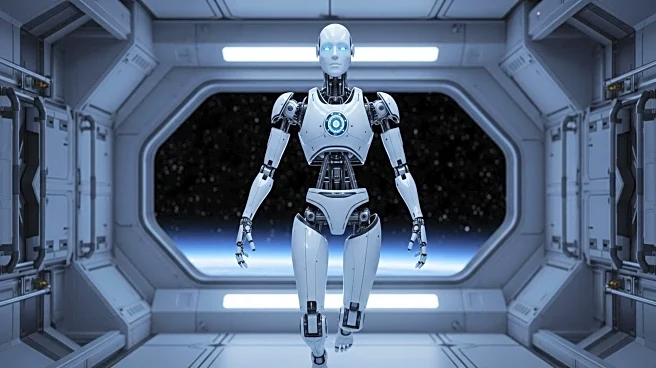What's Happening?
Icarus Robotics, a New York-based startup, has raised $6.1 million in seed funding to develop AI-controlled worker drones for future commercial space stations. The company aims to supplement astronauts' workloads by handling tasks such as cargo management, equipment checks, and scientific experiments. Founded by Jamie Palmer and Ethan Barajas, Icarus plans to deploy a prototype remotely-piloted robot to the International Space Station (ISS) for a year-long residency to gather data for training AI models. The initiative seeks to optimize astronauts' time in orbit, allowing them to focus on scientific research while robots manage routine tasks.
Why It's Important?
The introduction of AI-powered robots in space stations represents a significant shift in space labor dynamics. By automating routine tasks, Icarus Robotics aims to enhance the efficiency of space operations, potentially reducing costs associated with astronaut labor. This development could lead to increased scientific output, as astronauts can dedicate more time to research rather than maintenance. The initiative also highlights the growing role of AI in space exploration, paving the way for more autonomous operations in low Earth orbit, the Moon, and Mars. The funding supports the advancement of space technology, contributing to the commercialization of space activities.
What's Next?
Icarus Robotics plans to conduct its first zero-gravity test flight and deploy its robots to the ISS by early 2027. The company is working with Voyager Technologies to facilitate this deployment, which may face delays typical of space missions. As the project progresses, Icarus aims to expand its robotic workforce across multiple commercial space stations, potentially including extra-vehicular capabilities for tasks in the vacuum of space. The long-term vision involves AI-powered robots operating in various space environments, supporting astronauts and advancing scientific research.









